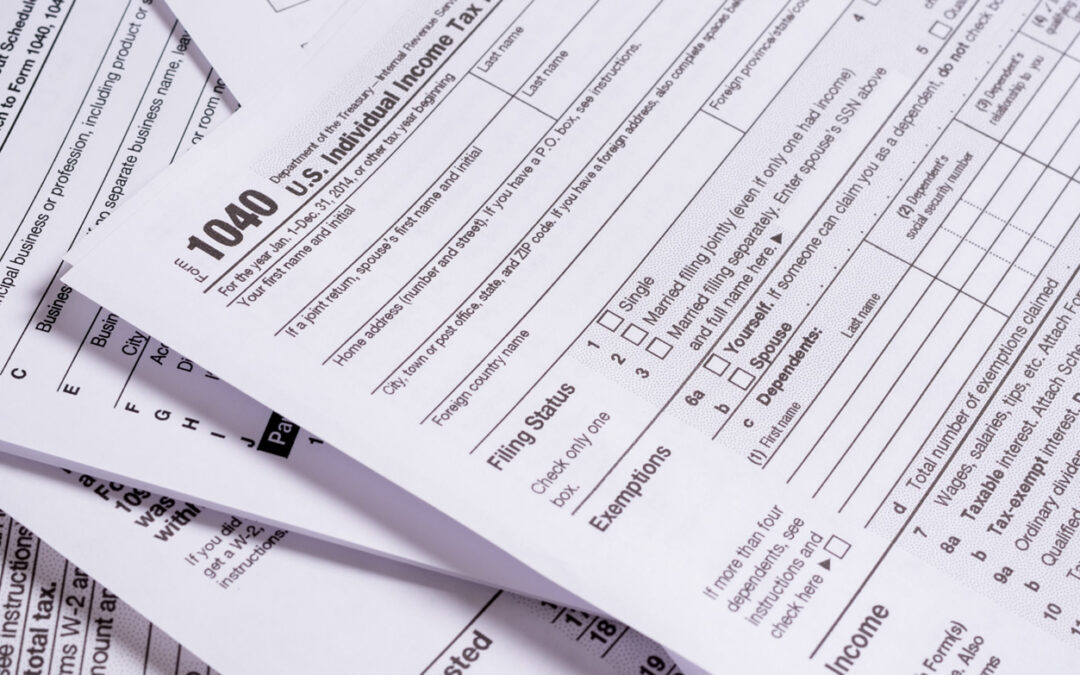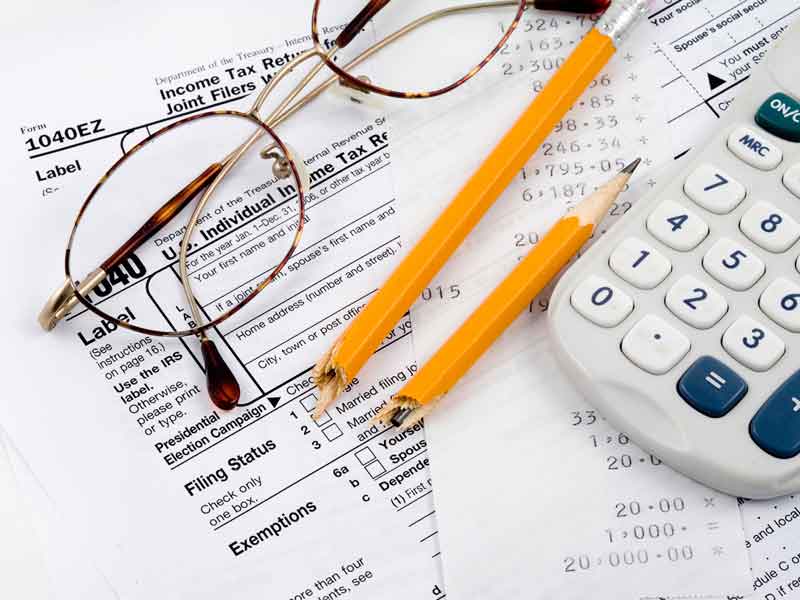
by sreamercpa | Jan 12, 2021 | IRS
The Internal Revenue Service today expanded the Identity Protection PIN Opt-In Program to all taxpayers who can verify their identities.
The Identity Protection PIN (IP PIN) is a six-digit code known only to the taxpayer and to the IRS. It helps prevent identity thieves from filing fraudulent tax returns using a taxpayers’ personally identifiable information.
The IRS launched the IP PIN program nearly a decade ago to protect confirmed identity theft victims from ongoing tax-related fraud. In recent years, the IRS expanded the program to specific states where taxpayers could voluntarily opt into the IP PIN program. Now, the voluntary program is going nationwide. Here are a few key things to know about the IP PIN Opt-In program:
· This is a voluntary program.
· You must pass a rigorous identity verification process.
· Spouses and dependents are eligible for an IP PIN if they can verify their identities.
· An IP PIN is valid for a calendar year.
· You must obtain a new IP PIN each filing season.
· The online IP PIN tool is offline between November and mid-January each year.
· Correct IP PINs must be entered on electronic and paper tax returns to avoid rejections and delays.
· Never share your IP PIN with anyone but your trusted tax provider. The IRS will never call, text or email requesting your IP PIN. Beware of scams to steal your IP PIN.
· There currently is no opt-out option but the IRS is working on one for 2022.
How to get an IP PIN Taxpayers who want an IP PIN for 2021 should go to IRS.gov/IPPIN and use the Get an IP PIN tool. This online process will require taxpayers to verify their identities using the Secure Access authentication process if they do not already have an IRS account. See IRS.gov/SecureAccess for what information you need to be successful. There is no need to file a Form 14039, an Identity Theft Affidavit, to opt into the program
No change for confirmed identity theft victims Taxpayers who are confirmed identity theft victims or who have filed an identity theft affidavit because of suspected stolen identity refund fraud will automatically receive an IP PIN via mail once their cases are resolved. Current tax-related identity theft victims who have been receiving IP PINs via mail will experience no change.

by sreamercpa | Jan 11, 2021 | accounting-tax
Earlier today (January 11, 2021) Governor Hogan announced that he will ask the 2021 state legislature to approve a $1 billion tax relief package designed to give direct payments to eligible low- and moderate-income Maryland taxpayers and tax credits to small businesses.
Called the Relief Act of 2021, here are some key points:
$267 Million Stimulus payments
Up to $450 for individuals and up to $750 for families, and is tied to those taxpayers eligible for the earned income tax credit in 2019
$180 Million Unemployment Tax Relief
Eliminating state and local income taxes on unemployment benefits
$300 Small Business Tax Relief
Sales tax credits for small businesses for up to four months.
Additionally, Governor Hogan wants to put his previous executive order preventing an increase to employer unemployment tax rates into law, as well as excluding state loan and grants from taxable income to businesses that participated in the Maryland state loan and grant programs.
The 2021 Maryland legislature convenes Wednesday, January 13 and Governor Hogan has stressed that this emergency bill needs to be passed immediately so the money can get into the hands of struggling Maryland individuals and small businesses.

by sreamercpa | Jan 11, 2021 | Paycheck Protection Program
Since April, we have been waiting on a resolution between the conflict between Congress’ intent for the PPP loan forgiveness to be non-taxable and the IRS’ position that the expenses attributable to the forgiven PPP loan are not deductible.
IRC Sec. 265(a)(1) disallows a deduction for otherwise eligible expenses to the extent the payment of those eligible expenses is allocable to tax-exempt income in the form of reasonably expected covered loan forgiveness. The IRS says that “the fact that the tax-exempt income may not have been accrued or received by the end of the taxable year does not change this result because the disallowance applies whether or not any amount of tax-exempt income in the form of covered loan forgiveness and to which the eligible expenses are allocable is received or accrued.
On December 27, 2020 President Trump signed the new Budget Act passed by Congress on December 21, 2020 now allows for the deduction of the expenses paid that are attributable to any PPP loan forgiven. This will apply to PPP loans from the original PPP loans this past summer, as well as the new round of PPP loans authorized in the new ACT.
Among other provisions, the new act also opens up another round of PPP loans that can be fully forgiven and directs the SBA to design a new 1 page form for PPP loan forgiveness when the loan amount is under $150,000.

by sreamercpa | Jan 3, 2021 | Cares Act
On March 20, 2020 the U.S. Department of Education directed the office of Federal Student Aid to suspend collection of student loan payments. This suspension of collections was extended on August 8, 2020 and again on December 4, 2020 and is expected to expire on January 31, 2021.
Taxpayers may want to make a payment before year-end to take advantage of the student loan interest deduction. The interest likely stopped accruing on your loans at the same time, but if you had interest that was capitalized, then you may still be able to take advantage of it. So, if their original loan was $50,000, but the current amount due is $60,000, then that $10,000 is likely capitalized interest or other deductible amounts. You’d need to look at their particular account to see how a payment will be applied, but for tax purposes a payment to “principal” can be applied to capitalized interest first.
Aa a result, many clients will have only 1/3 the amount of student loan interest deduction that they’ve had in the past. Remember that you’d need to pay enough to hit the $2,500 deduction amount after taking into account what you paid earlier in the year.

by sreamercpa | Dec 28, 2020 | accounting-tax
Most taxpayers received a Federal “Stimulus Check” or “Economic Impact Payment” from the Federal government for 2020 tax year. We will need to reconcile your payment to determine if you are owed any additional payment when we prepare your 2020 tax returns. In the coming weeks you should receive Notice 1444 which will show the amount of your payment. When you receive this notice, please place it with you rother important tax documents that you will being to us when you are ready for us to prepare your 2020 tax returns.
On December 27, 2020 President Trump signed the new stimulus act which includes an additional $600 stimulus payment to each taxpayer and dependents. The President has stated that he wants Congress to increase this to $2,000 for each taxpayer and dependent, so we are waiting for Congress to see if both parties can reach an agreement. We will update our site with any new changes when they are published.

by sreamercpa | Dec 13, 2020 | accounting-tax
How to prepare for the 2021 tax filing season
There are things taxpayers can do before the end of the year to help them get ready for the 2021 tax filing season. Below are a few of them.
Donate to charity
There is still time to make a 2020 donation. Taxpayers who don’t itemize deductions may take a charitable deduction of up to $300 for cash contributions made in 2020 to qualifying charities. Cash donations include those made by check, credit card or debit card. Before making a donation, people can check the Tax Exempt Organization Search tool on IRS.gov to make sure the organization is eligible for tax-deductible donations.
The Coronavirus Aid, Relief, and Economic Security Act changed this law. The CARES Act also temporarily suspends limits on charitable contributions and temporarily increases limits on contributions of food inventory.
Report any name or address change
Taxpayers who moved should notify the IRS of their new address. They should also notify the Social Security Administration of any name change.
Find information about retirement plans
IRS.gov has end-of-year find tax information about retirement plans. This includes resources for individuals about retirement planning, contributions and withdrawals. The CARES Act retirement plan relief waived required minimum distributions during 2020 for IRA or retirement plan accounts. Also, eligible individuals can take a coronavirus-related distribution of up to $100,000 by December 30, 2020 and repay it over three years or pay the tax due over three years.
Contribute salary deferral
Taxpayers can make a salary deferral to a retirement plan. This helps maximize the tax credit available for eligible contributions. Taxpayers should make sure their total salary deferral contributions do not exceed the $19,500 limit for 2020.
Think about tax refunds
Taxpayers should be careful not to expect getting a refund by a certain date. This is especially true for those who plan to use their refund to make major purchases or pay bills. Just as each tax return is unique to the individual, so is each taxpayer’s refund. Taxpayers can take steps now to get ready to file their federal tax return in 2021.

by sreamercpa | Dec 1, 2020 | accounting-tax
There are things taxpayers can do before the end of the year to help them get ready for the 2021 tax filing season. Below are a few of them.
Donate to charity
 There is still time to make a 2020 donation. Taxpayers who don’t itemize deductions may take a charitable deduction of up to $300 for cash contributions made in 2020 to qualifying charities. Cash donations include those made by check, credit card or debit card. Before making a donation, people can check the Tax Exempt Organization Search tool on IRS.gov to make sure the organization is eligible for tax-deductible donations.
There is still time to make a 2020 donation. Taxpayers who don’t itemize deductions may take a charitable deduction of up to $300 for cash contributions made in 2020 to qualifying charities. Cash donations include those made by check, credit card or debit card. Before making a donation, people can check the Tax Exempt Organization Search tool on IRS.gov to make sure the organization is eligible for tax-deductible donations.
The Coronavirus Aid, Relief, and Economic Security Act changed this law. The CARES Act also temporarily suspends limits on charitable contributions and temporarily increases limits on contributions of food inventory.
Report any name or address change
Taxpayers who moved should notify the IRS of their new address. They should also notify the Social Security Administration of any name change.
Find information about retirement plans
IRS.gov has end-of-year find tax information about retirement plans. This includes resources for individuals about retirement planning, contributions and withdrawals. The CARES Act retirement plan relief waived required minimum distributions during 2020 for IRA or retirement plan accounts. Also, eligible individuals can take a coronavirus-related distribution of up to $100,000 by December 30, 2020 and repay it over three years or pay the tax due over three years.
Contribute salary deferral
Taxpayers can make a salary deferral to a retirement plan. This helps maximize the tax credit available for eligible contributions. Taxpayers should make sure their total salary deferral contributions do not exceed the $19,500 limit for 2020.
Think about tax refunds
Taxpayers should be careful not to expect getting a refund by a certain date. This is especially true for those who plan to use their refund to make major purchases or pay bills. Just as each tax return is unique to the individual, so is each taxpayer’s refund. Taxpayers can take steps now to get ready to file their federal tax return in 2021.







